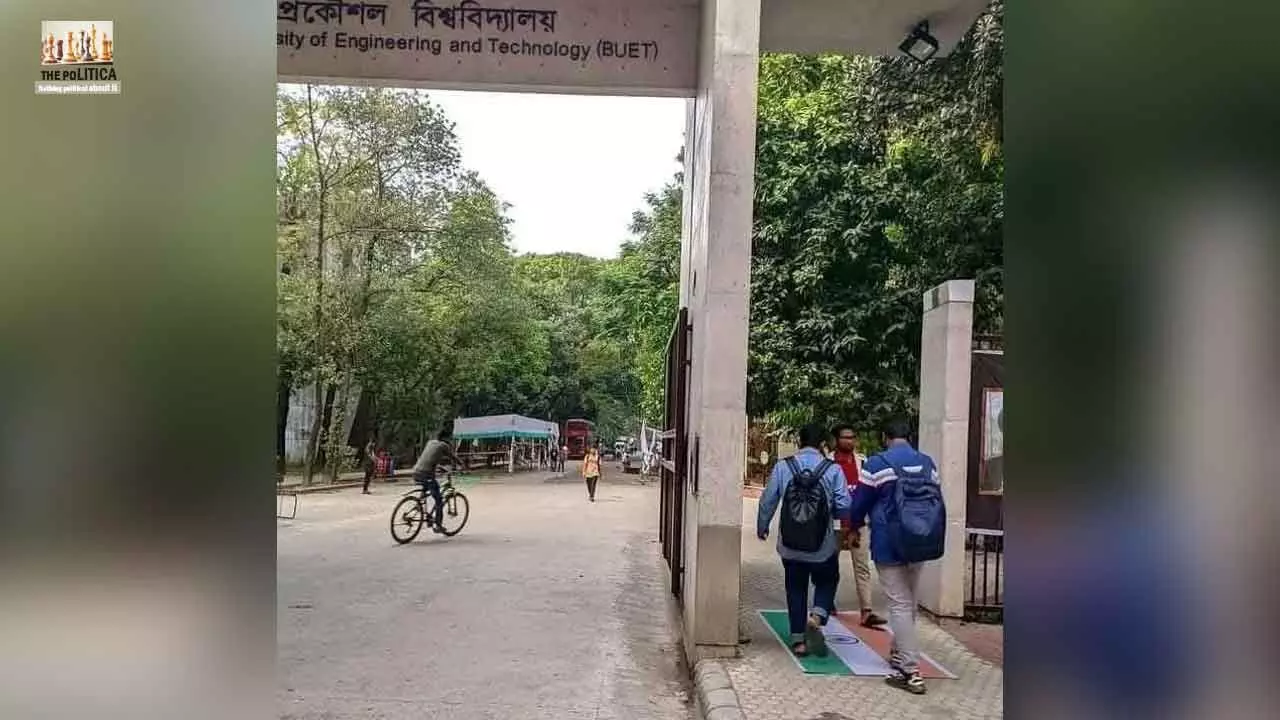India’s Role In Bangla’s Liberation And Need For Cross-Border Sensitivities
The shared history of sacrifice and collaboration makes the alleged incident at Bangladesh University of Engineering and Technology even more disheartening
India’s Role In Bangla’s Liberation And Need For Cross-Border Sensitivities

The Indo-Soviet Treaty of Peace, Friendship, and Cooperation, signed in August 1971, safeguarded India against potential Chinese or American intervention during the war. Furthermore, Prime Minister Indira Gandhi worked tirelessly to garner international support, cementing India’s position as a global advocate for justice and human rights
India’s role in the liberation of Bangladesh in 1971 remains one of the most significant chapters in South Asian history. India stood steadfast with the people of East Pakistan during their struggle for Independence, providing extensive diplomatic, humanitarian, and military support, ultimately leading to the creation of Bangladesh.
However, recent developments such as the installation of the Indian national flag at the entrance of Bangladesh University of Engineering and Technology (BUET), where students allegedly walk over it, have stirred sentiments in India. This act, seen by many as disrespectful, is particularly painful for those who recall India’s sacrifices for Bangladesh’s independence and the bond between the two nations.
In 1971, as Pakistan’s military regime unleashed brutal repression on the Bengali population of East Pakistan, India emerged as a beacon of support. The atrocities of Operation Searchlight, which included widespread killings and systematic oppression, triggered a mass exodus of refugees into India. Over 10 million people, predominantly from West Bengal, Assam, and Tripura, sought refuge in India, placing enormous pressure on its resources. Despite facing its own economic challenges, India demonstrated remarkable generosity, providing food, shelter, and medical assistance to those fleeing the violence.
India’s assistance went far beyond humanitarian aid. Politically, it recognised the plight of East Pakistanis and actively supported the Mujibnagar Government, the provisional government of Bangladesh formed in exile. India also played a critical role in training and equipping the Mukti Bahini, the guerrilla force that waged a determined fight against the Pakistani military. The culmination of India’s efforts came in December 1971, when its armed forces launched a decisive military campaign in response to Pakistani aggression, leading to the swift defeat of the Pakistani Army in East Pakistan.
The war ended on December 16, 1971, with the surrender of Pakistani forces in Dhaka, and the creation of Bangladesh as an independent nation. The shared history of sacrifice and collaboration makes the alleged incident at BUET even more disheartening. India not only invested its resources but also risked its geopolitical standing to ensure the freedom of Bangladesh.
The Indo-Soviet Treaty of Peace, Friendship, and Cooperation, signed in August 1971, safeguarded India against potential Chinese or American intervention during the war. Furthermore, Prime Minister Indira Gandhi worked tirelessly to garner international support, cementing India’s position as a global advocate for justice and human rights. Beyond the military and political dimensions, India’s support for Bangladesh has continued in the decades since independence.
Thousands of Bangladeshi citizens visit India every year for advanced medical treatment, education, and business opportunities. India’s principle of “Atithi Devo Bhava” (Guest is God) reflects its cultural ethos of welcoming neighbours and offering assistance. This makes the alleged lack of respect for the Indian flag particularly troubling, as it undermines the goodwill and historical ties between the two nations. Recent developments in Bangladesh have further strained these ties.
Hindu priest Chinmoy Krishna Das Brahmachari was recently arrested in Bangladesh on charges of sedition. International and local organisations, including ISKCON and the Bangladesh Hindu Buddhist Christian Unity Council, have condemned the arrest, citing concerns about religious freedom and safety for minorities in Bangladesh. India’s Ministry of External Affairs has also expressed concern over the incident and ongoing attacks on minority communities in Bangladesh. Such events highlight the urgent need for constructive dialogue between the two nations to ensure the safety and dignity of vulnerable groups. India must take these incidents seriously, not only as matters of national pride but also as opportunities to address larger concerns in its relationship with Bangladesh.
The growing reports of discrimination and violence against Hindus and other minorities in Bangladesh have caused alarm in India. Historical bonds should compel both nations to ensure that respect and understanding remain cornerstones of their relationship. India has a moral responsibility to advocate for the safety and dignity of Hindus, Sanatanis, and other minority communities in Bangladesh, particularly given the shared cultural and historical ties. At the same time, India must tread carefully in its cross-border interventions. Any measures taken must be aimed at fostering goodwill and mutual respect rather than escalating tensions. Constructive diplomacy, combined with strategic engagement, can help address these issues effectively. By leveraging its position as a regional power, India can ensure that the values of secularism, inclusivity, and mutual respect remain integral to its relationship with Bangladesh.
The incident at BUET and the arrest of Hindu priest Chinmoy Krishna Das Brahmachari serve as crucial moments for India to reflect on its influence in shaping cross-border perceptions. While India played an undeniable role in Bangladesh’s liberation, fostering mutual respect remains essential. Both countries must collaborate to prevent actions that could harm their shared legacy or weaken the spirit of partnership. India’s contribution to Bangladesh’s independence was rooted in a commitment to justice and humanity—a history that demands recognition and reverence.
Honouring this legacy requires joint efforts to preserve the dignity of national symbols and protect vulnerable communities across borders. By prioritizing mutual respect and understanding, Indo-Bangladesh relations can ensure that the sacrifices of 1971 continue to inspire unity and cooperation rather than discord.
(The author is Social reformer and Founder of International NGO, Bongo Bhashi Mahasabha Foundation.)

